会讯 | 12th Annual International Conference of the Chinese Association for Intercultural Communication (CAFIC)
2016/12/29
12th Annual International Conference of the Chinese Association for Intercultural Communication (CAFIC)
Theme: Research, Pedagogies and Practices
In Intercultural Communication
June 22-23, 2017
University of Nottingham, Ningbo, China
CAFIC
The University of Nottingham Ningbo China warmly invites participants for the 12th Annual International Conference of the Chinese Association for Intercultural Communication (CAFIC) on Thursday 22nd June and Friday 23rd June 2017. Hosted by the School of English in the Faculty of Humanities and Social Sciences, the conference will bring together scholars working in different strands of Intercultural Communication research from across China and abroad for two days of interdisciplinary exchange in an international environment.
You are welcome to submit abstracts of 300 words maximum, reporting empirical research into areas of Intercultural Communication. The conference is oriented towards multi-disciplinary perspectives, but we particularly welcome presentations with a focus around any of four main conference themes:
• Intercultural Communication research and practices in education and social sciences
• The teaching and learning of Intercultural Communication in courses for English majors and College English
• Teaching and pedagogic practices of Intercultural Communication for Business English, English for Academic Purposes and in other languages
• Intercultural Communication and media studies
Theme: Research, pedagogies and practices in intercultural communication
Date: June 22-23, 2017
Venue: University of Nottingham Ningbo, China
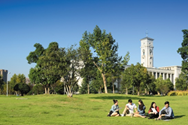
Key Dates
Abstract Submission Opens: December 27 2016 CAFIC-UNNC@nottingham.edu.cn
Deadline of Abstract Submission: February 6, 2017
Registration Opens: March 6, 2017
End of Early Bird registration: April 6, 2017
End of Standard registration: May 31, 2017
On-site Registration: June 1, 2017 onwards
摘要提交开放:2016年12月27日 CAFIC-UNNC@nottingham.edu.cn
摘要提交截止:2017年2月6日
注册开放:2017年3月6日
早鸟票注册截止:2017年4月6日
标准票注册截止;2017年5月31日
现场注册: 2017年6月1日后
Call for Abstracts
You are welcome to submit abstracts of 300 words maximum, reporting empirical research into areas of Intercultural Communication, particularly welcoming those with a focus around any of four main conference themes:
•Intercultural Communication research and practices in education and social sciences
•The teaching and learning of Intercultural Communication in courses for English majors and College English
•Teaching and practice of Intercultural Communication for Business English, English for Academic Purposes and other languages
•Intercultural Communication and media studies
Your abstracts must be submitted to: CAFIC-UNNC@nottingham.edu.cn
Confirmation of receipt of your submission will be sent automatically. Notification of acceptance will be sent by March 6, 2017.
Please visit the 12th CAFIC conference website (link) for further information or direct any enquiry to fhss@nottingham.edu.cn
We are looking forward to seeing you in Ningbo.
Registration
Registration Opens on March 6, 2017
Registration fees
All fees are quoted in RMB. Conference Registration includes conference materials and entry to all conference sessions, the Welcome Reception, the Banquet and Tea Breaks.
|
Delegates |
Early Bird Rate (Paid prior to April 6, 2017) |
Standard Rate (April 7, 2017 - May 31, 2017) |
|
CAFIC Member |
800RMB |
1000RMB |
|
Non-CAFIC Member |
1000RMB |
1200RMB |
|
Single Day |
800RMB |
1000RMB |
|
Students* |
600RMB |
800RMB |
|
On-site* (June 1, 2017 onwards) |
1300RMB |
|
*Full-time postgraduate students. Valid student ID must be presented at the registration desk. Full registration fee will apply if current student ID is not provided.
*Registrations after May 31, 2017 must be made onsite.
Method of payment
•For domestic remittance, please make the payment to the account below:
收款银行:中国银行宁波市分行
帐户名:宁波诺丁汉大学
银行账号:376658330575
•For overseas remittance, please make the payment to the account below:
Bank Name: Bank of China Ningbo Branch
Bank Address: 139 YaoHang Street Ningbo China
Swift code: BKCHCNBJ92A
Bank Account Name: The University of Nottingham Ningbo China
Bank Account Number: 376658330575
Please note the “CAFIC+Your name” when you make the wire-transfer.(请务必在汇款时备注交易附言“CAFIC+姓名”)
If you would like to request an invoice, please email fhss@nottingham.edu.cn with detailed information.
Registration entitlements
Conference Registration includes conference materials and entry to all conference sessions, the Welcome Reception, lunches, the Banquet and Tea Breaks.
Registration cancellation policy
All cancellations must be made in writing via e-mail fhss@nottingham.edu.cn.
Cancellations received before April 6, 2017: full refund minus RMB200.
Cancellations received before May 31, 2017: full refund minus RMB400.
Cancellations received after May 31, 2017 will not be entitled to a refund.
Bank transaction fees which result from sending the refund to your account will not be covered by CAFIC. Transaction fees will be within your responsibility.
Cancellations of travel reservation and hotel reservation are the exclusive responsibility of the registrant and will not be processed by the CAFIC.
取消参会注册费返还标准:
如欲取消参会,请书面发送说明邮件至工作邮箱:fhss@nottingham.edu.cn;
2017年4月6日之前收到取消说明,返还注册费,但扣除200元;
2017年5月31日之前收到取消说明,返还注册费,但扣除400元;
2017年5月31日之后收到取消说明,不再返还注册费。
CAFIC大会会务组不承担退费过程中产生的银行手续费,请取消参会者自行承担。
旅行及住宿预订的取消请参会者自行处理,CAFIC大会会务组不予负责。
Keynote Speakers
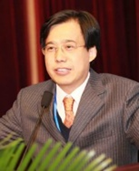
Speaker: Prof. Sun Youzhong, Vice President of Beijing Foreign Studies University, Chair of China Association for Intercultural Communication (CAFIC)
Speech Title: IC Teacher Development: A Case Study

Speaker: Prof. Eli Hinkel, Seattle University (USA), renowned scholar in Second Language Acquisition and English Language Teaching
Speech Title: Linguistic leadership in Multi-Cultural Meetings
Bio: Eli Hinkel teaches applied linguistics and TESOL at Seattle Pacific University. She has taught ESL and applied linguistics, as well as trained teachers, for more than thirty five years. She has published books and numerous articles on learning second culture, and second language grammar, writing, curriculum development, and pragmatics in such journals as TESOL Quarterly, Applied Linguistics, Journal of Pragmatics, and Language Teaching Research. Her books include Culture in Second Language Teaching and Learning, New Perspectives on Grammar Teaching, Second Language Writers' Text, Teaching Academic ESL Writing, Handbook of Research in Second Language Teaching and Learning, Volumes 1, 2, and 3 (2005, 2011, 2017), Effective Curriculum for Teaching Second Language Writing, and Teaching English Grammar to Speakers of Other Languages, as well as several student textbooks. She is also the editor of ESL & Applied Linguistics Professional Series of books and textbooks for teachers and graduate students, published by Routledge.

Speaker: Dr. Prue Holmes, Durham University/Victoria University (NZ), the current chairperson of the International Association of Languages and Intercultural Communication
Speech Title: Languages under Pressure and Pain: Implications for Languages and Intercultural Education
Bio: Prue Holmes is Reader in the School of Education, Durham University, United Kingdom. She is Co-investigator on the AHRC-funded “Researching multilingually at the borders of language, the body, law and the state” (http://researching-multilingually-at-borders.com/) (AH/L006936/1), establishing a methodology for how researchers draw on their linguistic resources in their research. She is also Co-investigator on the EU-funded project “Intercultural resources for Erasmus students and their teachers” (IEREST) (http://ierest-project.eu/). Prue has published extensively in the areas of language, intercultural communication and education, and student mobility. She chairs the International Association of Languages and Intercultural Communication (IALIC).
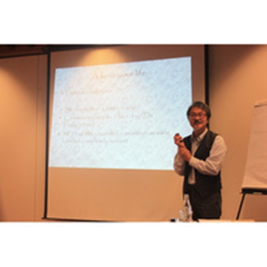
Speaker: Prof. Hiro Tanaka, Meisei University (Tokyo), specializing in intercultural business communication research and training
Speech Title: Linguistic leadership in Multi-Cultural Meetings
Bio: Hiro Tanaka is a professor in the School of Humanities and Social Sciences at Meisei University, in Tokyo, Japan. He teaches research methodology courses to graduate students, and also conducts intercultural project-based courses. He advocates a socio-cultural theory of education which assumes that learning takes place through social interaction. Hiro has published 86 articles and books on business discourse and human resource development. As a consultant, Hiro has been involved in a number of human resource development systems designs for Japanese and Non-Japanese companies. His current research interest is in the development and measurement of the abilities needed for working on multi-cultural teams.
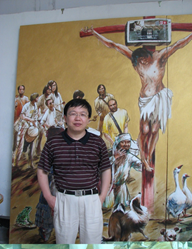
Speaker: Prof. Shan Bo, Wuhan University, specializing in media and intercultural communication
Speech Title: Sinologists and Different Types of the Construction of “Cultural China”: An intercultural perspective
Bio: Bo Shan, Professor of School of Journalism & Communication, Director of Center for Media Development Research, Wuhan University, China. Major research areas are intercultural communication and comparative journalism. Major works include The Problems and possibilities of intercultural communication, The Mental Space of Tang Junyi's Philosophy, Chinese Journalism and Communication in 20th Century, Academic Imaginary and Educational Reflection of Journalism and Communcation. E-mail: shanbo@whu.edu.cn
Special Guests
Prof. AN Ran, South China University of Science and Technology
Ms. Rosemary Arnott (OBE), UNICEF in Pakistan
Prof. DAI Xiaodong, Shanghai International Studies University
Prof. Doreen WU, Hong Kong Polytechnic University
Prof. GAO Yihong, Beijing University
Prof. HE Lianzhen, Zhejiang University
Prof. HUANG Guowen, South China Agricultural University
Prof. JIA Yuxin, Harbin Institute of Technology
Prof. Steve Kulich, Shanghai International Studies University
Prof. LIN Ziyu, Macao Polytechnic Institute
Prof. LIU Meihua, Tsinghua University
Prof. SHI Xinsong, University of International Business and Economics
Prof. SONG Li, Harbin Institute of Technology
Prof. WANG Junju, Shandong University
Prof. WANG Lifei, University of International Business and Economics
Prof. Joanna Adwarska WILLIAMS, Macao Polytechnic Institute
Prof. ZHANG Wenxia, Tsinghua University
Accommodation
1. New Century Grand Hotel Ningbo 宁波开元名都大酒店
Address: 666 Middle Shounan Road (Shounan Zhong Lu)
Transportation: 2.1 kilometers from the conference venue; 5 mins by taxi; Bus: No. 177, 161, 132, 166, 118
2. Sofitel Wanda Ningbo Hotel 宁波万达索菲特大酒店
Address: 899 Middle Siming Road (Siming Zhong Lu)
Transportation: 4.6 kilometers from the conference venue; 12 mins by taxi; Bus: No. 161, 363, 111, 118
3. Nnayuan Universe Deluxe Hotel 南苑环球大酒店
Address: 1288 Yinxian Avenue (Yinxian Dadao)
Transportation: 4.2 kilometers from the conference venue; 10 mins by taxi; Bus: No. 161, 177, 115, 118,368
4. Nanyuan New Town Hotel 南苑新城大酒店
Address: 667 Middle Taikang Road (Taikang Zhong Lu)
Transportation: 1.7 kilometers from the conference venue; 5 mins by taxi; Bus: No. 161, 139, 132, 166, 118
5.Yinzhou Teckon Ciel Hotel 天港禧悦酒店(鄞州)
Address: 606 Middle Siming Road (Siming Zhong Lu)
Transportation: 4.2 kilometers from the conference venue; 10 mins by taxi; Bus: 115,118, 177, 161
6.Lizi Hotel 丽兹大酒店
Address: 436 Middle Jinshan Road (Jinshan Zhong Lu)
Transportation: 4.4 kilometers from the conference venue; 10 mins by taxi; Bus: 117,118, 363, 161

Disclaimer
Participants are responsible for bookings and commitments made with the hotel. The organizer of 12th Annual International Conference of the Chinese Association for Intercultural Communication (CAFIC) takes no responsibility for any commitments participants made with the hotels.
Conference Venue
Introduction
The University of Nottingham Ningbo China (UNNC) was the first Sino-foreign university. It is located in Ningbo, one of China’s major ports and economic centres. Based in Ningbo Higher Education Park, this spacious, modern campus offers first-class amenities, including a library, teaching and IT facilities, accommodation for all students and staff, restaurants and shops, and a dedicated sports complex. UNNC is a place to deliver international experience in local setting. With campuses in the UK, China and Malaysia, Nottingham is a world-class university with a truly global perspective.
宁波诺丁汉大学是中国首个中外合作大学。它位于中国主要港口城市和经济中心之一的宁波。这个坐落于宁波高教园区的宽敞而富有现代气息的大学环境优美,图书馆、教学和IT设备、住宿、餐饮和购物、运动场馆等设施一应俱全。它坐于本地,放眼世界。拥有英国、中国、马来西亚三个校区的诺丁汉大学是一所真正具备全球视野的世界级大学。

Address 199 Taikang East Road, Ningbo, 315100, China
地址: 浙江省宁波市泰康东路199号
Campus map 校园地图
Website 宁波诺丁汉大学官网
http://www.nottingham.edu.cn/en/index.aspx
Ningbo City
Ningbo is located in Zhejiang province on the south shore of Hangzhou Bay, opposite Shanghai. 7,000 years old, populated with more than six million people and covering more than 1,000 square kilometres, Ningbo is a rapidly growing city. Ranked in the top ten of cities for business in China by Forbes, it is a thriving blend of enterprise, culture, education, tradition and entertainment.
There will be opportunities to familiarize yourself with the local environment and visit various local scenic spots, such as the Tianyi Pavilion and Nan Tang Old Street. Ningbo has a number of shopping malls and areas which have a variety of international chains and high street fashion outlets. Ningbo also has a bustling and vibrant night life and a range of local and international restaurants. The city is a unique mix of modern sky-scrapers and traditional architecture, complimented with parkland and scenic spots.

Contact us
For enquiries, feel free to contact Faculty Office of Humanities and Social Sciences, UNNC: fhss@nottingham.edu.cn
Hosts
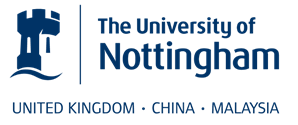
The University of Nottingham, Ningbo, China

China Association for Intercultural Communication
Sponsors
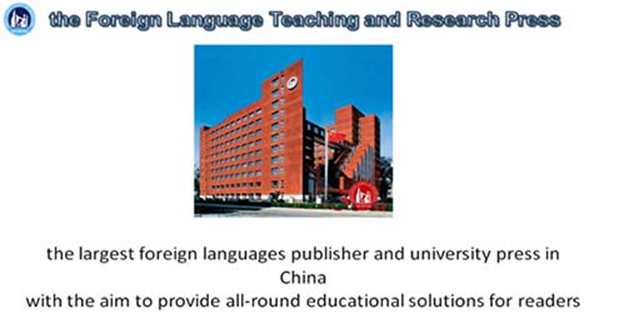
IC Teacher Development: A Case Study
Speaker:
Sun Youzhong (Beijing Foreign Studies University)

Abstract:
An urgent need in promoting the teaching of intercultural communication (IC) in foreign language programs in Chinese universities is to find a large number of foreign language teachers who are well equipped with intercultural competence and intercultural teaching competence. For this purpose, the China Association for Intercultural Communication launched the Training-the-Trainer Program on Intercultural Communication in the winter of 2016, which recruited 40 participants for a 3-day training session. The program, consisting of lectures, round-table discussions, group activities, journal writing, presentations, feedbacks, etc. focused on what to teach about intercultural communication and how to design intercultural training courses. This study is a preliminary attempt to investigate the perceived effectiveness of such an undertaking for IC teacher development. Mixed research methods including participant observation, focus group discussions, surveys, and interviews are used to capture the perceptions of the trainees on the following questions: in what aspects and to what extent can foreign language teachers improve their intercultural teaching competence and/or their own intercultural competence through a short intensive training session? It is hoped that the findings will lead to a better understanding of the primary guidelines for a successful IC teacher development program and serve as a road map for designing similar programs in the future.
Teaching and Learning Intercultural Communication:
Socio-Cultural Values and Pragmatics in Interaction
Speaker: Eli Hinkel (Seattle University)
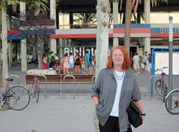
Abstract:
Most teaching of foreign/second language (FL/L2) culture is limited to the 4-Fs (folklore, festivals, food, and facts). These can be considered the visible aspects of culture, as they are readily apparent to anyone and can be discussed and explained relatively easily. Although these can be interesting and enjoyable, they may have little to do with improving learners' interactional skills or helping them to become successful in intercultural interactions. Yet, another far more complex meaning of culture refers to assumptions, beliefs, and value systems that find their way into practically all facets of language use, including language teaching and learning. Such "invisible" facets of culture refer to socio-cultural beliefs and assumptions that most people are not even aware of and thus cannot examine intellectually.
The culturally-determined concepts of what is acceptable, appropriate, and expected in one's behavior is acquired in the process of socialization and, hence, becomes inseparable from an individual's identity. To members of a particular community and culture, these assumptions appear to be self-evident and axiomatic. Because most individuals are socialized into their first culture, they are usually unaware of the influence of culture on language and the norms of interaction.
To become proficient and effective communicators, learners need to attain FL/L2 socio-cultural competence: not understanding the FL/L2 interactional, pragmatic, and behavioral norms can and does impact non-native speakers' ability to succeed. This presentation will address the cultural assumptions and presuppositions that under-grid practically all manifestations of interactional norms in communication. To become effective, classroom teachers are often faced with the need to develop their professional knowledge of the fundamental socio-cultural variables essential for FL/L2 teaching.
Languages under Pressure and Pain: Implications for Languages and Intercultural Education
Speaker: Prue Holmes (Durham University/Victoria University)

Abstract:
Recent backlashes to diversity brought about by mobility and refugee and economic migration, in the form of neo-nationalism and the rise of so-called “populist” movements, are causing citizens to rethink the place of their own language, culture, and identity in the face of community diversities. In China, north-south/rural-urban migration and economic prosperity have also added to such diversity, giving prominence to English as a commodity of economic success. The notion of one language-one culture-one nation, an ontology contested in contemporary language and intercultural communication research, appears to be re-emerging in many states. All this despite efforts by organisations such as UNESCO and the Council of Europe (in the European Union context) to establish an intercultural and languages education that acknowledges diversity and difference!
Where does this situation leave languages, the people using them, and the intercultural communities in which languages dwell? How can education systems, teachers, and students accommodate the tensions that emerge among standardized and structured approaches to essentialist language teaching and learning in contrast to the fluid, mobile language diversities, lingua franca Englishes, and translanguaging that characterize and define their daily intercultural communication in the workplace, in communities, on the Internet? What about when languages are silenced, or under pressure and pain as their speakers move or are forced across borders, whether physical, geographical, economic, social class, religious, political due to conditions of war, poverty and precarity. What are the implications for languages in the classroom?
I draw on research undertaken as part of the AHRC-funded research project “Researching multilingually at the borders of language, the body, law and the state” (AH/L006936/1), on the concept of translanguaging (Canagarajah, 2013; Creese & Blackledge, 2010; Li Wei & Garcia, 2014), and ecological language pedagogy (van Lier) to discuss how the above circumstances impact languages and intercultural education in a mobile and connected world. I also make connections to researchers who also must draw on their linguistic resources in the research process when they are researching multlingually.
Linguistic leadership in Multi-Cultural Meetings
Speaker: Hiro Tanaka, Meisei University (Tokyo)
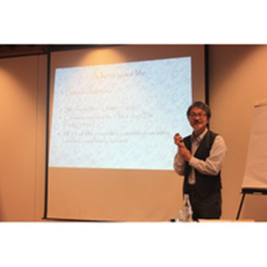
Abstract:
The English language is used in global business as a lingua franca, connecting people from various cultural backgrounds in managerial synergy. Recent studies highlight the critical importance of the consciousness of leadership exercised in lingua franca English business interaction. Exercising leadership in multi-cultural settings, however, may be constrained in various ways due to the inherent societal, linguistic, and managerial diversity in global business. These leadership challenges posed to intercultural business practitioners have not yet been sufficiently explored. In this presentation, I employ James Paul Gee’s notion of Discourse and Literacy to describe leadership exercised in multi-cultural meetings where English is used as lingua franca. Lingua franca English users’ Discourse requires a certain set of language usage, behavior, beliefs, and values. Leadership is viewed as a critical part of Literacy in such Discourse. I use data from three different meeting sites: technology exchange meetings between Arabian and Japanese engineers, decision-making meetings between Chinese and Japanese business people, and brain storming meetings between project participants from various countries including Japan, China, Vietnam, Romania, the Netherlands, Italy, and Albania. These meetings were video- or audio-recorded and then transcribed. The data documents the leadership practices exercised by the participants. According to these different contexts, different styles (both directive and inclusive) of leadership were observed. Qualitative and quantitative analyses revealing discursive strategies became key in these situations to constructing and co-constructing leadership for situational purposes. Finally, I will discuss how discursive strategies work to situationally help the leadership required to emerge in meetings, and how different types of leadership in turn affect team-building and the results of teamwork.
Sinologists and Different Types of the Construction of “Cultural China”: An intercultural perspective
Speaker: Bo Shan (Wuhan University)
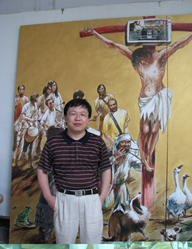
Abstract:
This article extends the meaning of “marginal man” from an intercultural perspective, proposes “cultural marginal man” to summarize the intercultural attributes of sinologists, and studies how sinologists participate in the construction of “cultural China”. This article takes subject positions and emotional involvement between sinologists and Chinese culture as two basic dimensions, through analysis of life experience and academic researches of more than ten contemporary famous sinologists, we sum up four types of cultural marginal man, namely intervenor based on external culture, neutral based on external culture, neutral based on Chinese culture, intervenor based on Chinese culture. These four types reveal the multi-mechanism of the interaction between Sinologists and Chinese culture, and provide new possibilities for the construction of “cultural China”.
Key words: Sinologist, Cultural Marginal Man, Cultural China, Sinicization


